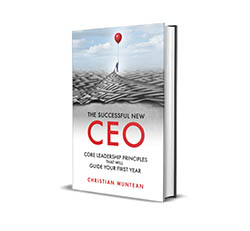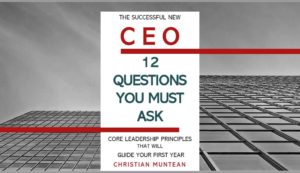A wineglass full of gas: A lesson in decision-making

Trusting Your Senses:  A lesson in decision making.
A lesson in decision making.
I came down with COVID about four months ago. I was one of the “lucky” bunch who lost their sense of taste and smell. Completely. For a while food was just texture. Smells were nothing.
Then my senses of taste and small started to come back. In stages. I could taste sweet flavors but couldn’t taste savory. I could smell lemon but couldn’t smell my kids (which was ok with me!).
Then I started smelling natural gas.
I was getting my car washed when I first noticed it. That worried me. Looked for gas leaks. Asked others to sniff test it. Nothing.
Soon, one side of my office started to smell like gas too. I asked two neighbors to come “sniff around”. It was great fun for them. But no gas.
I went out to dinner with my wife. Ordered a glass of merlot. Got ready for the first sip. Gas.
My reality wasn’t real.
I’d like to believe that the olfactory ambiance of both my vehicle and my office includes a touch of plum, a hint of vanilla with mint, the mouthfeel of dark chocolate, and a savory olive finish.
All of which I’m just misinterpreting as gas.
But they don’t.
I have no idea what my car or office smells like. Or my wine.
That’s a problem.
What is going on?
A little internet research and I discovered that my experience was a shared one. Many people experience altered or phantom smells. Our reality isn’t what is real.
This happens to leaders too.
Leaders should be action takers. Decision-makers. It’s hard to lead well if you don’t do both. And you often need to do both quickly.
To do either, a leader needs to be able to understand what is going on around them quickly. But that understanding can be tricky.
And sometimes what leaders perceive to be real is different than what is real.
My Well Used Questions
“How do you know?” “How did you arrive at this conclusion?” “What evidence do you have that supports this understanding?”
Many of my clients have heard these questions. For some, it’s frustrating.
Leaders often don’t know. They often jump to conclusions. Fill in the blanks. Make assumptions.
I rarely know what is going on. I usually just know what people tell me. And people tell me a lot of things.
I’ve learned to fact-check what people think they know.
How do you know this is true?
When you face a problem or an opportunity – how much of your information is verifiable? How much is inference? Assumption? Prejudice? Preference?
The more your information is based on anything other than verifiable information, the more likely you are to be wrong.
Our diagnosis of the problem might be wrong. Therefore our attempt at a solution might be wrong.
What about intuition? Should we listen to our gut?
I believe in intuition. I pay close attention to my “gut”. Frequently, my feeling about a situation or a person is accurate.
But not always. Or it isn’t the whole story.
I’ve learned to pay close attention to that feeling. To me, it rarely means “Act.” What it usually means is “Investigate.”
When my gut is telling me something, I’ve learned to ask questions. I look deeper. I make far fewer mistakes when I use my gut to start a line of inquiry instead of conclusions.
Admit that we believe what we want to believe
Confirmation bias is a thing.
It’s the tendency to only seek out, recognize, or accept information that supports already-arrived-at conclusions.
We can only handle so much information. So, our brain automatically filters out a lot of “noise”.
We become emotionally (or otherwise) invested in certain conclusions being true. So, our brain filters out or rationalizes away conflicting information.
We believe what we want to believe. Regardless of what is real.
The last couple years of news, politics, and science have been amazing examples of confirmation bias. People believe what and who they want to believe. It doesn’t matter how much or few actual facts support their perspective.
It makes complete sense to be wrong nine times but if the tenth time we are right – we were right all along. We all see “those people” doing this. But “they” see us doing it too.
We live in a world where the exceptions, increasingly, define the norm.
What do you want to be true? How do you handle conflicting data? Do you even expose yourself to it?
The Solution? Ask Questions
Early in my early academic journey, I learned to use triangulation in research. It helps the researcher be sure of their observations.
Triangulation is a term borrowed from surveying. Surveyors will use multiple compass points – often three – to pinpoint a direction on a map.
In research, this means using multiple data sets or research methodologies to explore the same question.
In simple terms – look at the question from multiple angles. Use more than one source of information. The less objective the information is that you have the more sources you should pursue.
The best approach is to keep doing this until you keep getting the same answer. Then there is reason to be confident.
Sometimes this frustrates people who want you to agree with them, right away, without examination.
This can take some time. It usually requires effort. It may be costly.
But it rarely takes as much time, effort, or cost as fixing (or living with) the mistake.
Don’t throw out the wine.
Just because I smell gas doesn’t mean I’m smelling gas. I’m not. That’s why I asked other people. Who knows what my nose will tell me next?
But if I smell something strange – or nothing at all – I know that I probably need other people sniffing around to help me understand the facts.
Just because you’ve arrived at a really good conclusion doesn’t make you right. Especially for important decisions, get in the habit of verifying your facts. From multiple directions.
You’ll be amazed at how much better, and more confidently, you’ll be able to make decisions.
Take good care,
Christian
In the podcast Thought Leaders Driving Returns (TLDR), I’m interviewed by host Hunter Guthrie about how important mindset is in leadership and about effecting cultural change in the face of transition. LISTEN HERE.
Are you interested in learning more about becoming a successful CEO? If so, get a free copy of my book The Successful New CEO. Not a new CEO? I’ve been told by “old hands” that they felt any CEO should read this. So, click here to get your copy today.
by “old hands” that they felt any CEO should read this. So, click here to get your copy today.
Let’s connect.
I’m passionate about helping leaders to create workplaces they love going to and increasing the value of the services they offer. My results-oriented approach is tailored to each client’s specific situation and needs. As a leadership coach, I have developed a wealth of resources to help you and your team grow and become stronger.
Weekly Newsletter – sign up to receive my weekly articles addressing critical leadership challenges and issues.
The Leadership Coach Podcast – In my podcast, we explore effective, high-impact, and enjoyable leadership. Subscribe.
Resources – Visit my website’s Resources page for e-books, webinars, training, and leadership coaching opportunities for you and your team.
There are 𝟭𝟮 𝗰𝗿𝗶𝘁𝗶𝗰𝗮𝗹 𝗾𝘂𝗲𝘀𝘁𝗶𝗼𝗻𝘀 to ask before accepting a new CEO position. Do you know what they are? Instantly download my free e-book here.
Find the value of your company with my free assessment tool: The Value Builder System
The Value Builder System™ is a 13-minute online questionnaire that evaluates your business on the eight factors that contribute more to its attractiveness and value. These factors are scored on a scale of 1-100. Businesses that score over 80 are likely to command 70%-100% higher value than others.
Opportunities
Free Resource: How To Accomplish More Without Doing More is a workbook I created to walk leaders through a process of helping you own your calendar, liberate your time, and still get more done. Download it for free!
Executive and Leadership Coaching: Do you feel overwhelmed? Are you not getting the results you expect from the effort you are putting in? Do you find yourself facing similar challenges time and time again? Would you like to change specific ways of relating or reacting? If you would like to experience predictable, measurable growth Contact me.
Profitable Exit Strategy Workshop: Are you a business owner or partner? Over 55? Starting to think about exiting your business or active management in the next 3-5 years?
- Curious about what your business might be worth?
- Would you like to discover the specific steps you need to take to increase its value and become highly attractive to a buyer?
- Are you planning on handing it over to family or employees and you want to ensure long-term success?
If so, contact me now
Article Categories
Popular articles

Download my free 10-page eBook:
How To Accomplish More Without Doing More:
Eight Proven Strategies To Change Your Life
Discover how to save eight hours during your workweek-even if you're too busy to even think about it. The resource every maxed out executive needs.

